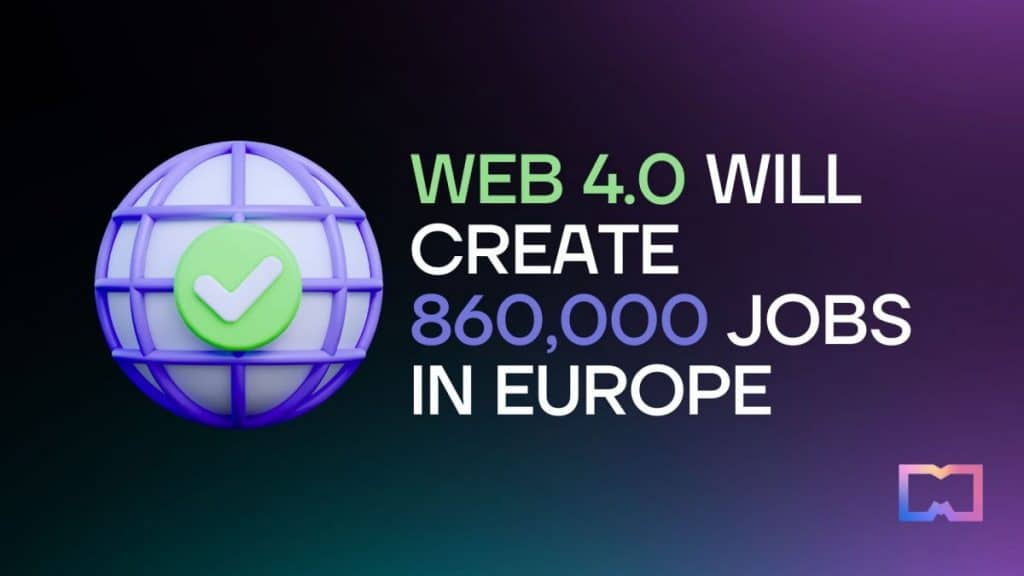The European Commission has stated that the advent of Web 4.0 is expected to create around 860,000 jobs within Europe by 2025.
In Brief
On July 11, the European Union officially launched its new strategy for Web 4.0.
This strategy is designed to empower individuals by enhancing their skill sets, supporting businesses, and bolstering virtual public services.
According to the report, by 2025, The launch of this industry is set to create approximately 860,000 new job openings across Europe.
Europe's leadership aspiration in the Web 4.0 domain focuses on crafting a forward-looking digital environment. The EU is keen on guiding this technological shift to ensure an inclusive, secure, and reliable digital landscape for all residents and enterprises within its member states.

The new strategy Announced on July 11 by the EU, this framework includes three key components for digital advancement. The European Union intends to assist citizens in developing the necessary skills for emerging technologies while also nurturing a talent pool of specialists in virtual environments. A report suggests that by 2025, this sector will yield 860,000 new job opportunities. report Next, the initiative emphasizes the need to assist businesses in cultivating a European ecosystem for Web 4.0. Lastly, it indicates that government bodies will play a critical role in advancing societal progress and enhancing virtual public services. For example, the EU intends to introduce two groundbreaking public projects: a virtual city environment named 'CitiVerse' and the 'European Virtual Human Twin,' a digital representation of the human body aimed at improving medical decisions and personalized treatment.
The forecast concerning the EU's economy emphasizes that Web 4.0 will usher in a new technological era characterized by immersive and interconnected experiences. Research indicates that the global virtual world market could exceed €800 billion by 2030, especially notable given that its size was merely €27 billion in 2022.
In essence, the press release defines Web 4.0 as a technology that bridges the gap between the digital sphere and the physical world. This new web era promises to enhance the interaction between people and machines, although it also highlights potential risks associated with these advanced technologies.
"The upcoming internet revolution will fundamentally change how we coexist, offering substantial advantages. It’s essential that we prioritize the needs of people and design this evolution in line with our EU digital rights and principles,\"
Additionally, the European Union is committed to ensuring that the interoperable virtual realms do not fall under the control of a handful of major corporations, and it seeks to collaborate with global internet governance entities to establish standard Web 4.0 practices.
wrote the European Commission in a tweet .
NFT Paris: Europe's Largest Conference Dedicated to NFTs
Read more:
Disclaimer
In line with the Trust Project guidelines Valeria reports for Metaverse Post, where she covers topics related to fundraising, AI, the metaverse, digital fashion, NFTs, and all things Web3.







